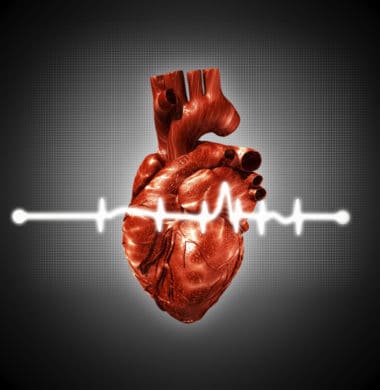A-Fib and Sleep Apnea – Are They Related?

Atrial Fibrillation is a complex diagnosis. It can be caused by several things, and therefore can have a wide range of ancillary symptoms and conditions that go hand-in-hand with it as well. Often, people with A-Fib struggle with consistent and quality sleep, but some patients with A-Fib also report symptoms of sleep apnea. But are the two conditions related? Let’s look a little closer.
What Are The Stats?
Like we mentioned above, A-Fib can have a wide-ranging number of causes. Hypertension, age, diet, and other factors can contribute to an A-Fib diagnosis. But regardless of the full range of possible causes, the stats seem to show that about half of patients with A-Fib also suffer from sleep apnea. There isn’t enough data to say they’re entirely related to one another, but the correlation is incredibly strong and shouldn’t be ignored.
Why Do Sleep Apnea and A-Fib Go Hand-in-Hand?
Some of the risk factors for both are the same, but more studies need to be conducted so we can get a better picture as to why these two conditions seem to come together. We can make some conjectures from those similar risk factors, including lifestyles that leave patients vulnerable to both conditions, as well as genetic factors that make both a heart arrhythmia and a respiratory condition more likely. If you are diagnosed with A-Fib, it may make sense to consult your doctor about a sleep apnea assessment. In a process like this, your physician would look at factors that create a higher likelihood of being afflicted by sleep apnea like:
- Excess weight
- Narrowed airway
- Age
- Gender
- Family History
- Smoke and alcohol use
- High blood pressure
- Chronic nasal congestion
As you can see, from that list alone, several factors contribute to both conditions. If you’re worried that A-Fib may lead to sleep apnea, talk to your doctor.
How Do You Treat Them Both?
If you are learning to live with both of these conditions, it’s natural to wonder how you might best treat them both. As always, it will likely come down to a combination of lifestyle changes and medical devices/medication to help you keep the highest quality of life possible. Sleep apnea is most often treated with a CPAP machine that the patient wears while sleeping. Then, A-Fib is managed in conjunction with this. A-Fib can be treated through procedures like ablation, or medication depending on the severity of your condition. A-Fib Ablation may be especially effective in patients with sleep apnea who are utilizing CPAP treatment. On the flip side, if patients are diagnosed with sleep apnea but are not treating it, the recurrence rate of A-Fib after ablation is much higher.
As with any health concerns, your specific treatment program should be discussed thoroughly with your primary care physician as well as any specialists who may need to be consulted – like a cardiologist. But even if you are diagnosed with both conditions, there is no reason you can’t live a full, happy life, as long as you’re proactive and willing to commit to treatment as well as lifestyle changes.
- Does Vaping Increase Your Risk of Heart Disease? - July 7, 2025
- Lifestyle Factors That Increase Your Risk of Heart Disease - May 26, 2025
- 6 Tips for Exercising Outdoors with a Heart Condition - May 19, 2025
Sign Up
As with any health concerns, your specific treatment program should be discussed thoroughly with your primary care physician as well as any specialists who may need to be consulted – like a cardiologist.
Sign Up
